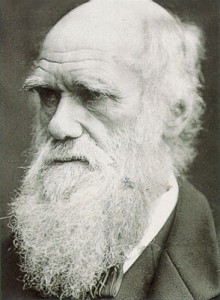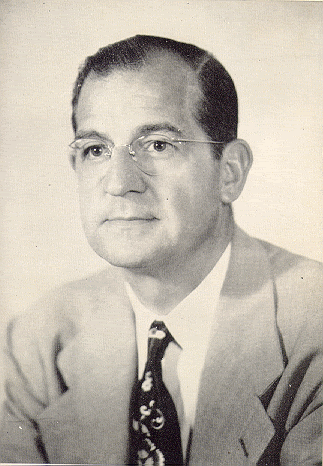Just for the fun of it, I thought I’d write an allegorical short story. I had this idea of writing some satirical fiction that takes place in a parallel world in an alternate history–kind of like the Invention of Lying, but with a Christian agenda… In this world shortly after the Renaissance there was the Enlightenment, the name for an epoch of time where men slowly learned to reject the traditional understanding of the sun as an extra-terrestrial entity and instead argued that this appearance of an ordered form in the sky was in fact an illusion.
Some time in the 1800’s, a man named Chuck Newrad had formulated a theory that what we call the “sun” was actually just the culmination of light particles that gradually emerged from the ground at the horizon during the twilight hours of the day and culminated over time into an ordered form that appears as a shining disc in the sky. According to Newrad, this was a matter purely of atmospheric phenomena. This ordered shape would then transverse the heavens, carried along by the steady jet stream in the upper atmosphere until it finally dispersed into the ground again on the other side. Furthermore, it was the left over particles of light in the upper atmosphere that then speciated into various forms, often perceived as “stars”.
Chuck’s book “The Origin of the Species” became a popular treatise and changed the entire paradigm of astronomy. Universities went from teaching the Heliocentric Theory to the Theory of Illumination. The world seemed to shrink as the sun and stars were described in terms of meteriological phenomena. There was no longer any need to acknowledge anything outside our own little sphere of existence–if it could rightly be called a “sphere” at all. While the Greeks had conceptualized the Earth as a round globe since at least the 6th century BC and seemed to have established that understanding in the 3rd century BC, such antiquated modes of thought were made obsolete by the emerging scientific intelligentsia who now insisted we had to progress beyond these ancient superstitions.
As society became more and more enamored with the theory of Illumination, the motto emerged “I only believe what I can see” and since one cannot see this supposed sun that disappeared behind the curvature of the Earth, the shape of the Earth itself was doubted as anything more than flat. The post-modern philosophy of the 20th century took this thought one step further as Eastern philosophers like Allan Volts doubted whether we ourselves even exist as one cannot see oneself without the aid of a mirror, and mirrors were considered untrustworthy sources of empirical data.
Well, not everyone in the western world disbelieved the traditional understanding of the sun. Some continued to hold on to the older traditional understanding that there’s a much wider universe outside of our own little realm of experience. These “Sun People” were progressively ostracized as more and more people started to accept Newrad’s theory. The majority of Americans claimed to be “Sun People” and still much of Europe as well, but their numbers did not necessarily equal strength as many in the media were “Luminaries” who openly scoffed the antiquated notions of these believers in the sun.
Hugh Mann was one particular individual born in the States who, like many Americans, was raised up to believe in the sun, but after all the exposure from the media started to doubt this traditional understanding. When he was a teenager, he once asked his father “What if there isn’t a sun, dad?”
“What? No sun? Ha! Just look at the sky! And if there was no sun, how in the world would we see anything in the daytime?” his father responded gruffly. This seemingly shallow response didn’t really satisfy Hugh’s intellect, not when his peers at school were mocking him for his outdated beliefs and his science teacher waxed long about how established the Theory of Illumination was.
Well, one day Hugh was watching Opera Windbag on television.
“There’s many ways to get to the sun,” the bombastic woman on the television explained, “one can dig very sincerely into the earth, take a boat across the sea, or climb a really tall mountain. See, because it’s not about the destination; it’s the journey. The sun is what you make of it, and it’s more important that you bask in its light than come up with all these definitions of what the sun is or isn’t. Even if you want to call that light darkness and darkness light; it’s all good.”
Right in the middle of Opera’s rant, a loud series of knocks came at the door. Hugh turned off the television and answered the door. Standing before him was a man in a slick suit with a smile as polished as his shiny shoes. It was nearly noon and it was blistering outside, yet this poor salesman was standing in the heat grinning like a madman as he held a small stack of magazines in his hands.
“Can I help you…?” Hugh asked bewildered by the odd display. He had thought door-to-door salesmen were a relic of the past. Not only was this man’s occupation seemingly antiquated, his clothing choices seemed straight out of the 50’s.
 “Perhaps I can help *you* my friend! My name is Joe, and I am a member of the Society of Celestial Witnesses. I’m out here today encouraging astronomical observation and study as can be had through the pages of Skywatcher and Constellation magazines! Have you ever read Skywatcher before?”
“Perhaps I can help *you* my friend! My name is Joe, and I am a member of the Society of Celestial Witnesses. I’m out here today encouraging astronomical observation and study as can be had through the pages of Skywatcher and Constellation magazines! Have you ever read Skywatcher before?”
“I’m familiar with them, yes…”
“Great! Well, I’m out here today offering a limited time offer on FREE monthly subscriptions to both Skywatcher and its companion publication Constellation.”
“Look, I’m afraid I’m really not interested. I mean, to be honest I’ve examined what Skywatcher has to say and it’s simply not scientifically valid.”
“Oh?”
“Well, it seemed like the Skywatcher teaches that the sun is a disc 6 foot in diameter a mile or so above the surface of the Earth.”
“Yes, very true. Any truly reasonable person would agree with that assessment.”
Hugh blinked for a moment as he took in the salesman’s words. After parsing it several times over in his mind he replied: “Did you just insult me…?”
“Let the honest-hearted person consider the facts of the matter…” the salesman said in reply, apparently ignoring Hugh’s question altogether.
“Uh… okay…”
“Y’know, many people believe the sun is this extremely hot fiery ball of gas millions of miles away, but that’s simply not true! Our sun gives us life and energy every day. How could it possibly be so remote? And no one here is roasting alive; how could it be so terribly hot?”
“Well, but that’s the point. They say the sun is so far away that only a fraction of its heat gets to us.”
“That doesn’t make any sense. We experience the full warmth of the sun every day. When it’s not there, it’s cold. When it is there; it’s warm. What more proof do you need? There’s none of this ‘fraction’ business. That whole concept was completely made up by Pay-Guns.”
“Pay-Guns?”
“Yeah, this online arms manufacturer based out of Greece invented the whole thing to get people to buy their weapons that could ‘shoot all the way to the sun’!”
“How do you know they weren’t relying on something somewhat scientifically valid themselves?”
“Pay-Guns?! Ha! Nothing can be learned from them! They filed for bankruptcy!”
“I don’t see what that has to do with it. I mean, we don’t have to learn from them. All we have to do is investigate the matter ourselves from reliable sources and if we come to the same conclusion, so be it. How do you know that everyone is just borrowing from Pay-Guns as you say?”
“Because it’s the same concept! Think about it!”
“Okay, the thing of it is… I’ve looked over your Skywatcher publication before and I don’t see a lot of sources cited. I mean, why should I trust what your publication has to say over how other people have interpreted the evidence?”
“Well, because we’re the only publishing company that has the truth.”
“Okay, and how do I know that’s the case?”
“Well, for one we’re not teaching this ‘fraction’ business!”
“Okay… but how do you know the ‘fraction’ thing isn’t true?”
“Just think about it, sir! It doesn’t make sense! How can the sun warm us when it’s so far away? The people who teach this stuff don’t even understand it! All they can say is that it’s a ‘mystery’. Hmpff.”
“Well, I mean, it makes sense to me. Space might be a vacuum, but electromagnetic radiation doesn’t require a medium to travel, and thus ultraviolet rays travel through the vacuum of spaaace for millions of miles and subsequently heat our atmosphere. Due to the vast distance between us and the sun, the effects of the sun’s thermal radiation is diminished in the same way as its luminosity. In other words, the greater the distance, the lesser the heat. The sun is extremely hot, but we only feel a fraction of its heat.”
“……Sounds like a bunch of mumbo jumbo to me! Thermal radiation! Vacuum! Ultraviolet rays! All a bunch of crazy terminology to distract from the basic point that this ‘fraction’ nonsense makes no sense!”
“Okay, well I thought I tried to explain it simply enough. Suffice it to say, the farther the sun is away from us, the lesser heat we experience. And thus, while the sun might be very far away, we still experience its warmth as it is extremely hot.”
“Alright, look, it seems as though we’re at an empasse here. You believe what you believe, and I’ll believe what I’ll believe. Have a nice day!”
Before Hugh could say a word in response, the man quickly scurried off. Hugh sighed and shook his head as he slowly closed the door to shut out the sweltering heat of the midday sun. Inside, he returned to his cool couch and turned his attention to the television, as the Opera show continued…
“…and this man was telling me how grand and expansive is this whole cosmos–this whole ‘universe’ outside of the world we know–a cosmos beyond the cosmos wherein our own little world is just a ‘planet’ that orbits this star–and then he said this star is fiery hot. And I was, y’know, drawn along in this whole journey until he said fiery hot. The sun is fiery hot? It’s a big ball of fire you say? And, I didn’t really like that idea, so instead of examining it further, I of course rejected it outright without another thought. So that’s when I left behind ‘sound reasoning’ and ‘rational thought’ and started to embrace something more progressive, y’know? I don’t believe we have to accept ideas that are uncomfortable to us. And of course, by believe I mean whatever I can convince myself to think continuously so as to ignore anything that offends my misguided sensibilities.”
[To be continued…]



Note to self: Hugh’s final thought at the end: “It’s like I live in a world where a lot of people honestly believe we all descended from apes or something…”
Helpful blog, bookmarked the website with hopes to read more!
Cool! That’s a ceevlr way of looking at it!